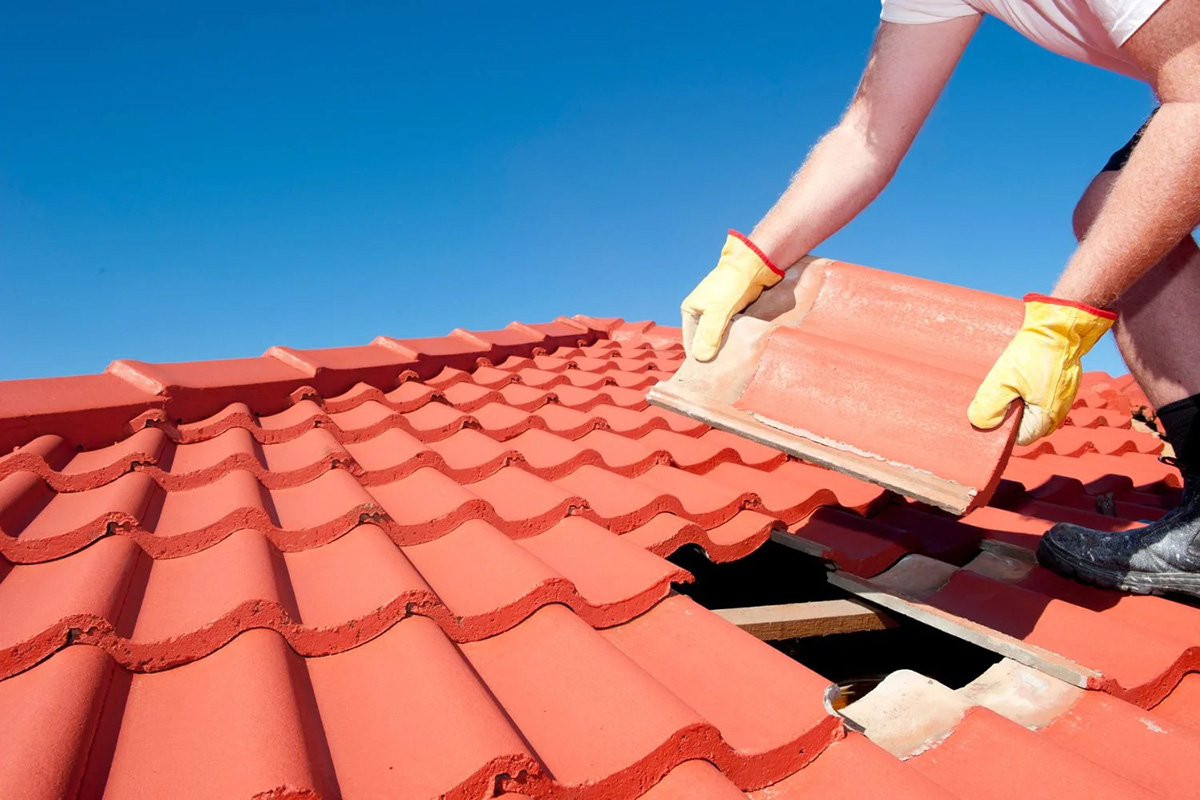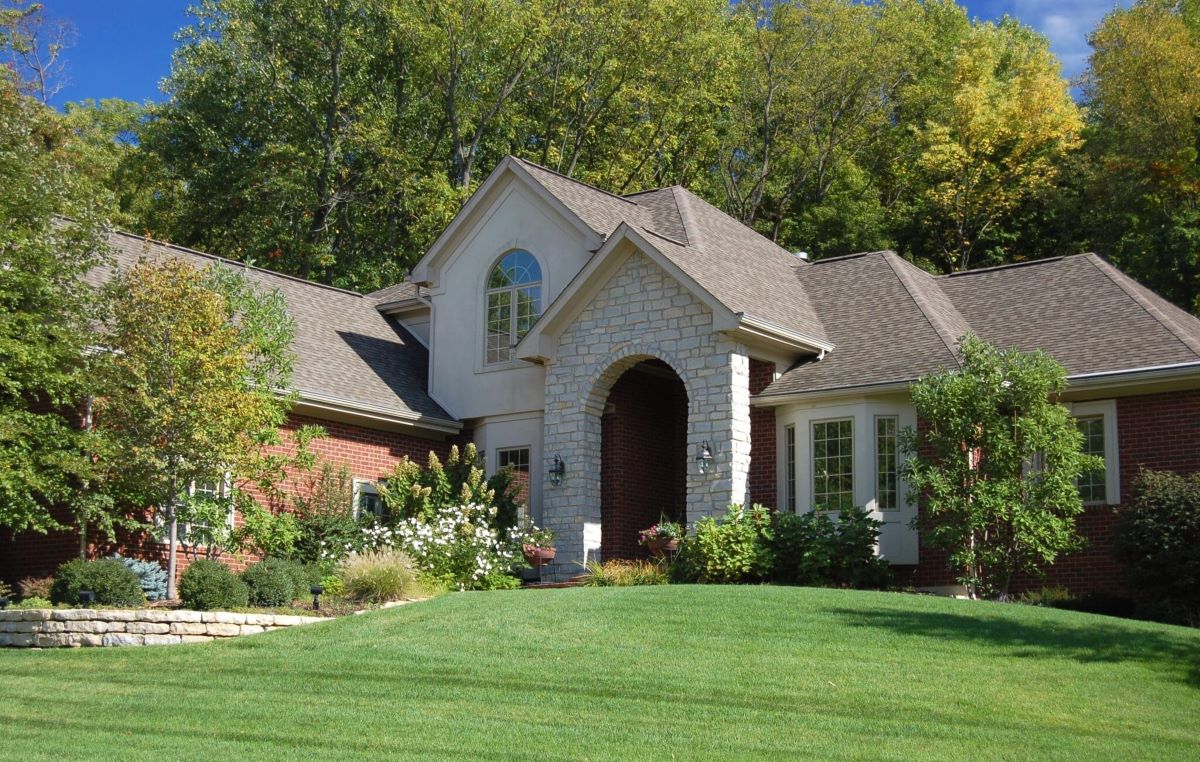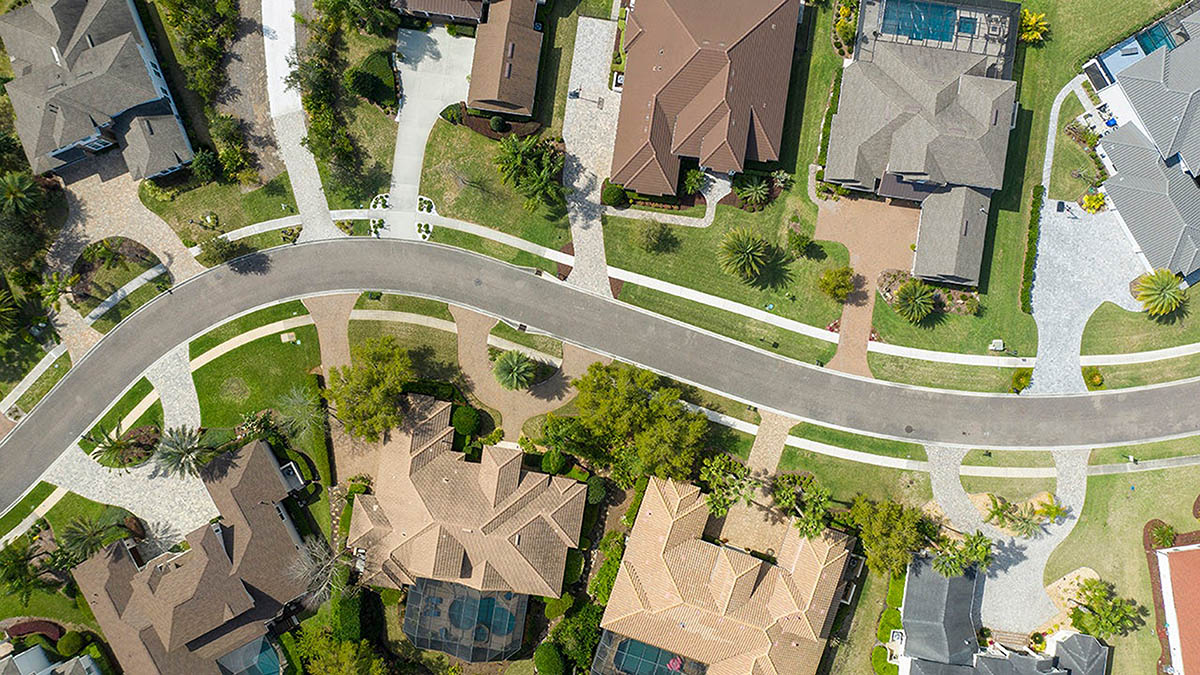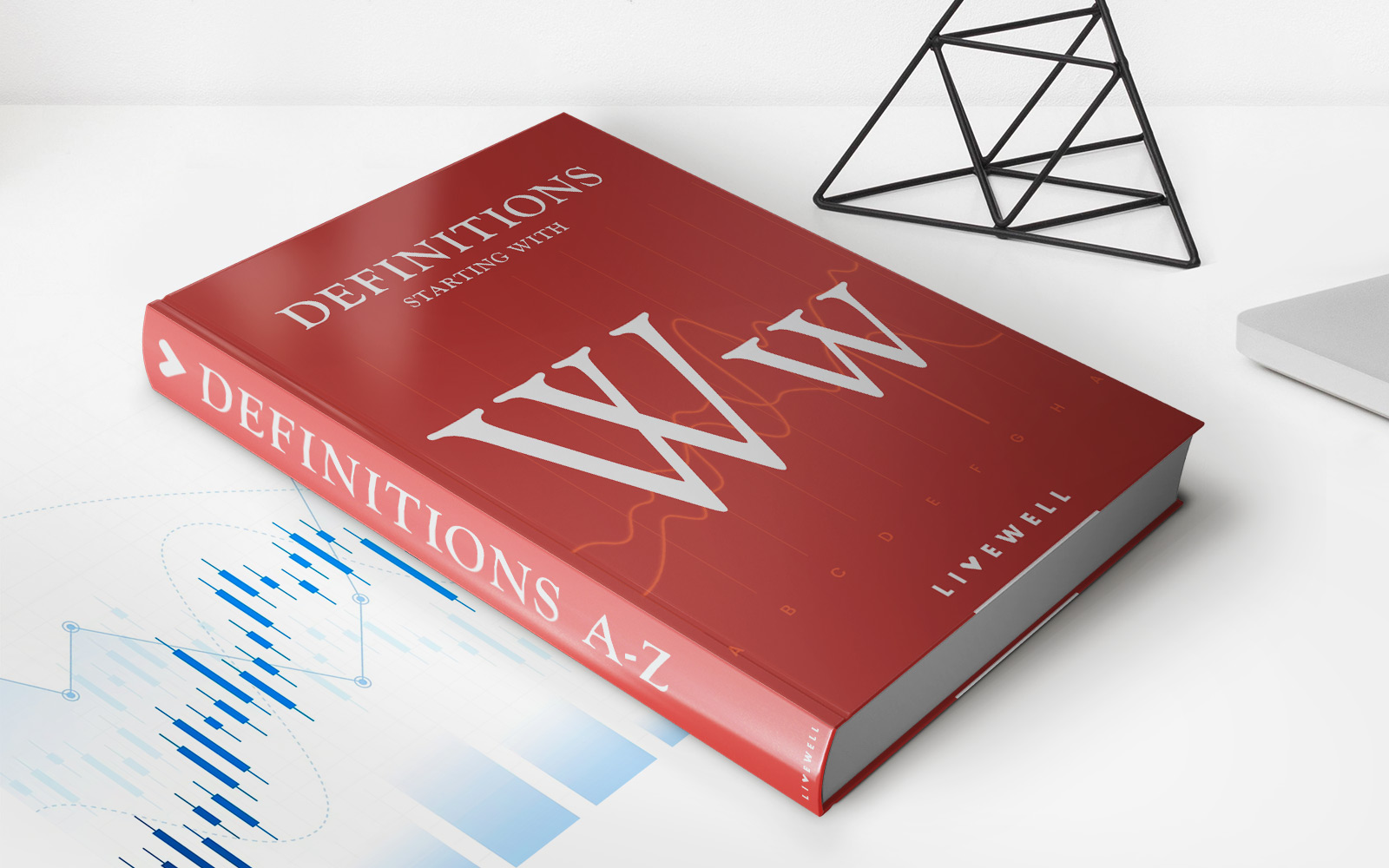Home>Finance>How Much Will A New Roof Lower My Homeowners Insurance?
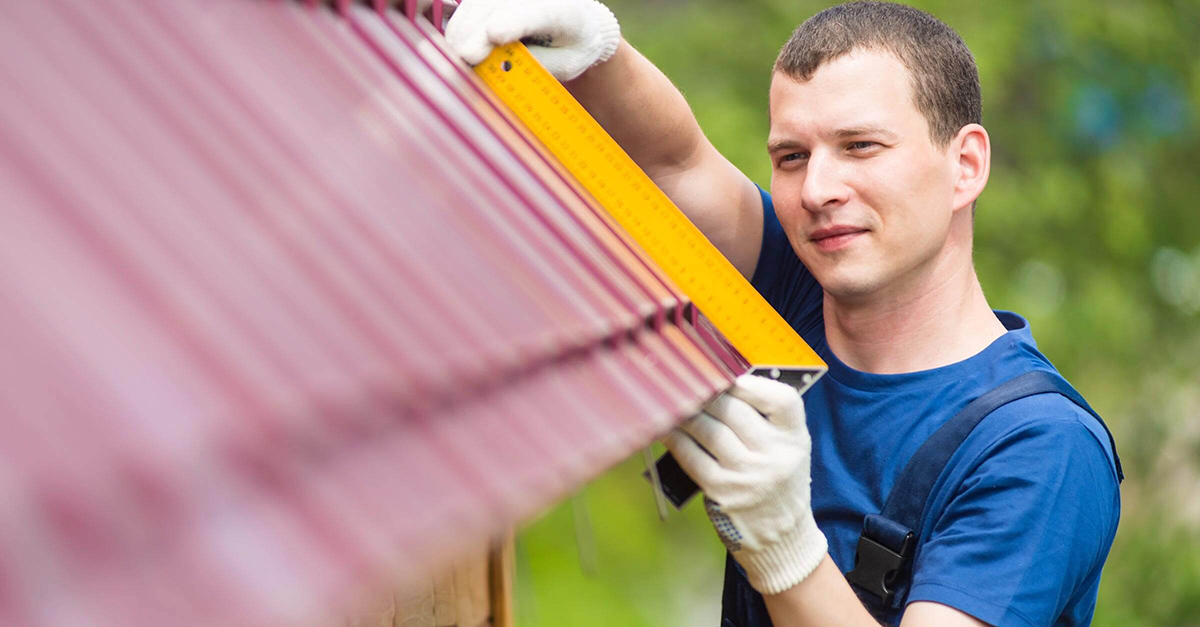

Finance
How Much Will A New Roof Lower My Homeowners Insurance?
Published: November 17, 2023
Learn how replacing your roof can impact your homeowners insurance premiums. Discover the financial benefits of investing in a new roof for your home.
(Many of the links in this article redirect to a specific reviewed product. Your purchase of these products through affiliate links helps to generate commission for LiveWell, at no extra cost. Learn more)
Table of Contents
Introduction
When it comes to protecting our homes, homeowners insurance plays a crucial role. It provides financial security against unexpected events such as fire, theft, or natural disasters. However, homeowners insurance premiums can add up, so finding ways to lower them is always a priority for homeowners.
One factor that can have a significant impact on your homeowners insurance premium is the condition of your roof. An old or damaged roof can increase your risk of claims and therefore lead to higher insurance costs. On the other hand, investing in a new roof can not only improve the safety and aesthetics of your home, but it can also result in potential savings on your insurance premiums.
In this article, we will explore the relationship between getting a new roof and the potential impact it can have on your homeowners insurance. We will discuss the factors that affect insurance premiums, examine whether a new roof is worth the investment, and explore how insurance companies view and reward homeowners with new roofs. By the end, you will have a clear understanding of how a new roof can lower your homeowners insurance costs and the steps you can take to maximize those savings.
Factors that Affect Homeowners Insurance Premiums
Before delving into how a new roof can impact your homeowners insurance, it’s crucial to understand the various factors that influence insurance premiums. Insurance companies consider multiple elements when calculating your premium, and being aware of these factors can help you better understand the potential savings a new roof can provide.
1. Age and Condition of the Home: The age and overall condition of your home play a significant role in determining your insurance premium. Older homes or homes in poor condition might be more prone to damages, leading to higher premiums. By investing in a new roof, you improve the overall condition of your home, which can result in lower insurance costs.
2. Location: The location of your home also impacts your insurance premium. Living in areas prone to natural disasters, such as hurricanes or tornadoes, can lead to higher premiums. Some insurance companies consider the proximity of your home to fire hydrants, fire stations, and other services when determining your premium.
3. Claims History: Insurance companies analyze your claims history to assess the risk of future claims. If you have a history of frequent claims, it may result in higher premiums. Having a new roof can decrease the likelihood of roof-related claims, which can help lower your premium.
4. Credit Score: In many states, insurance companies consider your credit score when calculating premiums. A good credit history can result in lower premiums, while a poor credit score can lead to higher costs. Investing in a new roof demonstrates responsible homeownership and may positively impact your credit score, leading to potential savings on insurance.
5. Deductible Amount: The deductible is the amount you agree to pay out of pocket before your insurance coverage kicks in. Choosing a higher deductible can lower your premium, but it’s essential to consider your financial capability to cover the deductible in the event of a claim.
6. Insurance Coverage Limits: The amount of coverage you choose for your home and belongings affects your insurance premium. Ensuring you have adequate coverage, but not excessive, can help manage your premium costs.
By addressing these factors and understanding how they impact your homeowners insurance premium, you can make informed decisions about investing in a new roof to potentially lower your insurance costs.
Is a New Roof Worth It?
Now that we’ve discussed the factors that influence homeowners insurance premiums, you may be wondering if investing in a new roof is worth the expense. The answer depends on various factors, including the condition of your current roof, your long-term plans for the home, and your budget.
1. Roof Age and Condition: If your roof is old and showing signs of wear and tear, it may be a wise investment to replace it. An aging roof is more susceptible to leaks, damage, and potential insurance claims. A new roof provides better protection for your home and may improve its overall value.
2. Long-Term Ownership: If you plan to stay in your home for the foreseeable future, a new roof can offer peace of mind and potentially long-term savings. It eliminates the need for constant repairs and reduces the risk of extensive damage due to roof-related issues.
3. Resale Value: If you are considering selling your home in the near future, a new roof can significantly boost its appeal and market value. Potential buyers appreciate the peace of mind that comes with a recently installed, durable roof. This enhancement can make your home more attractive in a competitive real estate market, potentially resulting in a higher selling price.
4. Energy Efficiency: Installing a new roof can also provide an opportunity to improve energy efficiency. By choosing energy-efficient roofing materials, such as reflective shingles or a cool roof, you can reduce your home’s energy consumption and potentially lower utility bills. This eco-friendly feature adds value to your home while benefiting the environment.
5. Personal Preferences: Some homeowners simply prefer the aesthetic upgrade that a new roof brings. Whether it’s updating the style or color to better match your taste or ensuring a cohesive look with other exterior renovations, a new roof can enhance the visual appeal of your home.
Ultimately, the decision to invest in a new roof depends on your unique circumstances. It’s essential to assess the current condition of your roof, consider your long-term plans for the home, and evaluate your budget. While a new roof may require an upfront investment, the potential long-term savings, increased home value, and improved protection can make it a worthwhile choice.
How a New Roof Impacts Homeowners Insurance
One of the significant ways a new roof can impact your homeowners insurance is by potentially lowering your insurance premiums. Insurance companies value the added protection and reduced risk that comes with a new roof, which can result in cost savings for policyholders.
Here are a few ways a new roof can impact your homeowners insurance:
- Reduced Risk of Damage: A new roof provides better protection against leaks, hail damage, and other weather-related issues. Insurance companies view this reduced risk as a positive factor when assessing your premium. By minimizing the potential for costly roof-related claims, you may be eligible for lower insurance rates.
- Improved Fire Resistance: Some roofing materials, such as metal or fire-resistant asphalt shingles, offer enhanced fire resistance compared to older roofing materials. Insurance companies consider this when evaluating the risk profile of your home. If you invest in a fire-resistant roof, you may qualify for discounts on your homeowners insurance.
- Enhanced Wind Resistance: Certain roofing materials, like impact-resistant shingles or properly installed metal roofs, offer better wind resistance. This is particularly beneficial if you live in an area prone to strong winds or hurricanes. Insurance companies recognize the reduced probability of wind-related claims with a new roof and may offer discounts accordingly.
- Longevity of the Roof: Insurance companies may also take into account the lifespan of your roof when determining your premium. A new roof typically has a longer expected lifespan, which reduces the likelihood of filing a claim for roof replacement in the near future.
- Qualify for Policy Enhancements: In addition to potential premium reductions, a new roof may make you eligible for policy enhancements or endorsements. For example, some insurance companies offer additional coverage options for roofs installed within a specified time frame. These enhancements can provide extra protection and peace of mind for homeowners.
It’s important to note that each insurance company has its own guidelines and criteria for evaluating the impact of a new roof on premiums. To fully understand the potential savings, it’s recommended to discuss your specific situation with your insurance provider.
By investing in a new roof, you not only improve the safety and functionality of your home, but you also present a lower risk profile to your insurance company. This reduced risk can lead to savings on your homeowners insurance premiums and provide additional coverage options. It’s a win-win situation for both you and your insurance provider.
Insurance Discounts for New Roofs
Insurance companies recognize the value and benefits of a new roof, which is why many offer insurance discounts to homeowners who invest in roof replacements or repairs. These discounts are designed to incentivize proactive maintenance and reduce the risk of claims. While the availability and amount of discounts may vary between insurance providers, here are some common types of insurance discounts for new roofs:
- Roof Age Discount: Some insurance companies offer discounts based on the age of your roof. If you have recently installed a new roof, you may qualify for a discount. This discount rewards homeowners for taking preventative measures to maintain their homes.
- Impact-Resistant Roof Discount: If you choose to install an impact-resistant roof, such as those made of metal or certain types of asphalt shingles, you may be eligible for a discount. These roofs are designed to withstand hail and severe weather conditions, reducing the risk of damage and potential insurance claims.
- Fire-Resistant Roof Discount: Some insurance companies provide discounts for homeowners with fire-resistant roofing materials, such as metal roofs or fire-rated asphalt shingles. These materials offer increased protection against fire and can lead to savings on insurance premiums.
- Multi-Policy Discount: Bundling your homeowners insurance policy with other insurance policies, such as auto or umbrella insurance, can qualify you for a multi-policy discount. Installing a new roof may increase your eligibility for this discount, as insurance companies view it as a proactive step to protect your property.
- Claims-Free Discount: If you have a history of being claims-free for a certain period, insurance companies may offer discounts on your premiums. A new roof helps reduce the likelihood of future claims, making you eligible for this discount.
- Roof Maintenance Discount: Insurance companies may reward homeowners who regularly maintain and inspect their roofs. By keeping your roof in good condition through routine maintenance and repairs, you demonstrate responsible homeownership and may qualify for a discount.
It’s important to note that the availability and amount of insurance discounts vary among insurance providers. Some insurance companies may offer specific discounts for new roofs, while others may bundle the savings into overall premium calculations. To determine the specific discounts available to you, it’s crucial to discuss your situation with your insurance provider and inquire about any potential savings resulting from a new roof installation.
By taking advantage of insurance discounts for new roofs, you can reap the financial benefits of your investment while ensuring the safety and protection of your home. Be sure to review your insurance policy regularly to maximize your savings and maintain adequate coverage for your property.
Choosing the Right Roofing Materials for Insurance Savings
When it comes to reducing your homeowners insurance costs, selecting the right roofing materials can make a significant difference. Insurance companies often evaluate the type of roof you have when determining your premiums. By choosing the right materials, you can potentially save money on your insurance while still ensuring the durability and protection of your home.
Here are some roofing materials to consider for potential insurance savings:
- Metal Roofing: Metal roofs are known for their durability and longevity. They are resistant to fire, impact, and strong winds, which can help lower your insurance premiums. Metal roofs are also energy efficient, which can earn you additional discounts.
- Impact-Resistant Shingles: Impact-resistant shingles are manufactured with reinforced materials that can withstand hailstorms and other severe weather conditions. These shingles can reduce the risk of damage and potential insurance claims, leading to potential premium savings.
- Fire-Resistant Materials: Certain roofing materials, like metal, slate, or fire-resistant asphalt shingles, offer increased fire resistance compared to traditional asphalt shingles. Insurance companies value this added protection and may offer discounts on your premiums as a result.
- Tile Roofing: Tile roofs are durable, long-lasting, and resistant to fire and strong winds. Insurance companies may view them favorably and provide discounts to homeowners with tile roofs due to their durability and ability to withstand weather-related risks.
- Green Roofs: Green roofs, which consist of living vegetation, offer environmental benefits and can qualify for insurance savings. They provide insulation, reduce energy consumption, and contribute to stormwater management. Insurance companies may offer discounts for homeowners who install green roofs as they demonstrate eco-friendly practices.
When choosing roofing materials, it’s important to consider your specific location, climate, and insurance provider’s guidelines. Some materials may be more effective in certain regions or offer more significant discounts with specific insurance companies.
Additionally, keep in mind that the cost of the roofing materials and installation should be factored into your decision-making process. While some materials may offer greater insurance savings, they may also have a higher upfront cost. Consider the long-term benefits and potential return on investment when making your selection.
Consulting with a professional roofing contractor who is knowledgeable about insurance guidelines and discounts can be helpful. They can provide valuable advice on selecting the right roofing materials that meet both your insurance savings goals and your budget.
By choosing roofing materials that offer durability, resistance to weather-related risks, and energy efficiency, you not only protect your home but may also qualify for potential insurance savings. Take the time to evaluate your options and consult with experts to make an informed decision that aligns with your insurance needs and budget.
Selecting the Right Roofing Contractor
When it comes to installing a new roof, selecting the right roofing contractor is just as important as choosing the right materials. A qualified and reputable contractor ensures that your new roof is installed correctly, minimizing the risk of future issues and potential insurance claims. Here are some key factors to consider when selecting a roofing contractor:
- Experience and Expertise: Look for a contractor with a solid reputation and extensive experience in installing the type of roof you desire. A contractor with expertise in specific roofing materials and techniques can ensure a high-quality installation, which can lead to insurance savings.
- Licensing and Insurance: Verify that the contractor is licensed and insured. This provides protection for you as the homeowner in case of accidents or damage during the roof installation process. It also demonstrates a level of professionalism and compliance with local regulations.
- References and Reviews: Ask the contractor for references from previous clients and take the time to read online reviews. Hearing about other homeowners’ experiences can give you insights into the contractor’s reliability, workmanship, and customer service.
- Warranty: Inquire about the warranties offered by the roofing contractor. A reputable contractor should provide both a workmanship warranty and a manufacturer’s warranty for the roofing materials. These warranties not only protect your investment but also reflect the contractor’s confidence in their work.
- Proper Documentation: Make sure the contractor provides a detailed written contract that outlines the scope of work, materials used, timeline, and payment terms. Review the contract carefully and ask any questions to ensure clarity and avoid any misunderstandings.
- Local Knowledge: Choose a contractor familiar with local building codes, weather conditions, and insurance requirements. They will be well-versed in the specific regulations and guidelines that may impact your insurance coverage and premium calculations.
- Communication and Professionalism: A reliable contractor should communicate effectively, answer your questions promptly, and provide regular updates throughout the project. They should exhibit professionalism in their interactions, showing respect for your property and providing clear explanations of any issues or concerns.
Remember, the cost of the roofing project is an important consideration, but it should not be the sole determining factor. Quality workmanship, adherence to safety standards, and proper installation techniques are essential for preserving the integrity of your roof and potentially obtaining insurance savings.
Take the time to research and interview multiple roofing contractors to compare their qualifications, pricing, and reputation. Don’t hesitate to ask for proof of insurance and licensing, as well as any relevant certifications. By selecting a reputable roofing contractor who meets your requirements and ensures a proper installation, you can maximize the longevity and functionality of your new roof while potentially benefiting from insurance savings.
Conclusion
Investing in a new roof for your home not only improves its aesthetics and functionality, but it can also have a positive impact on your homeowners insurance premiums. By understanding the factors that affect insurance costs and the potential savings associated with a new roof, you can make informed decisions to protect your home while benefiting from possible insurance discounts.
Factors such as the age and condition of your home, location, claims history, credit score, deductible amount, and insurance coverage limits all play a role in determining your homeowners insurance premium. By installing a new roof, you can address some of these factors, potentially reducing the risk of claims and demonstrating responsible homeownership.
A new roof can impact your homeowners insurance by providing reduced risk of damage, improved fire and wind resistance, and lower chances of replacements in the near future. Insurance companies often reward homeowners with lower premiums and discounts for these risk-reducing features.
When selecting roofing materials, consider options such as metal roofing, impact-resistant shingles, fire-resistant materials, tile roofing, or even green roofs for potential insurance savings. These materials offer durability, weather resistance, and energy efficiency, factors that insurance companies value and appreciate.
It’s equally important to choose a reputable roofing contractor who has the necessary experience, licensing, insurance, and warranties. A professional contractor ensures a proper installation, minimizing future issues and potential insurance claims. They also possess local knowledge and can guide you through the insurance requirements specific to your area.
In conclusion, a new roof can be a worthwhile investment that not only enhances the protection and value of your home but may also lead to savings on homeowners insurance premiums. By understanding the relationship between a new roof and insurance, considering the right roofing materials, and choosing a reliable contractor, you can enjoy the peace of mind of a secure home while potentially lowering your insurance costs in the long run.
